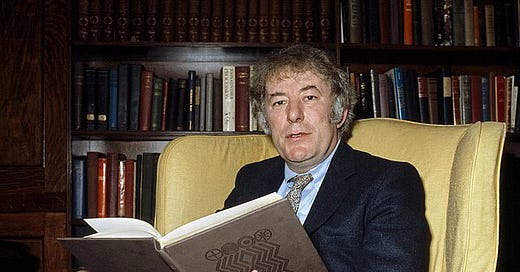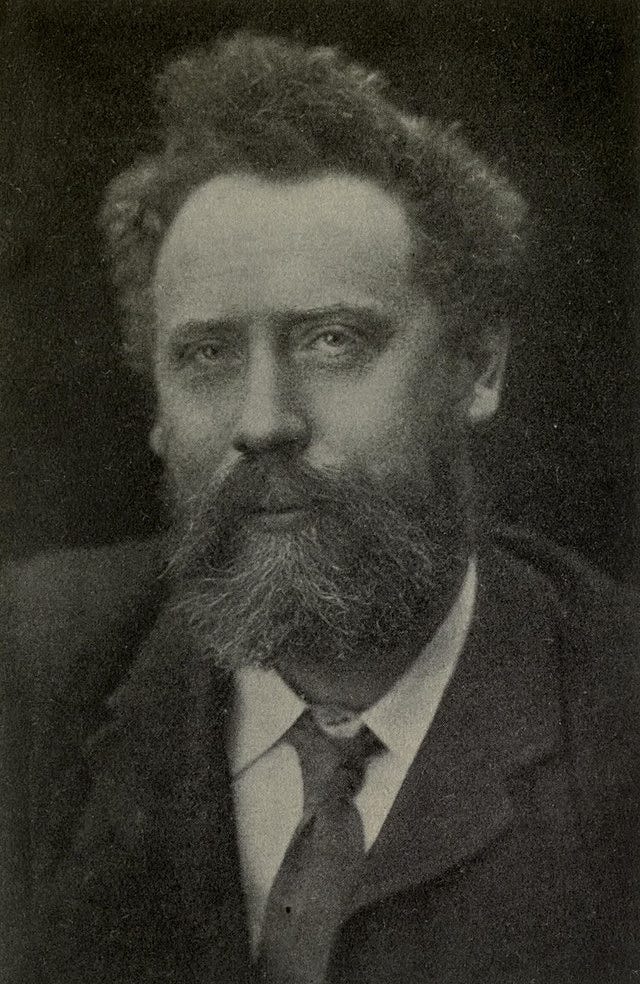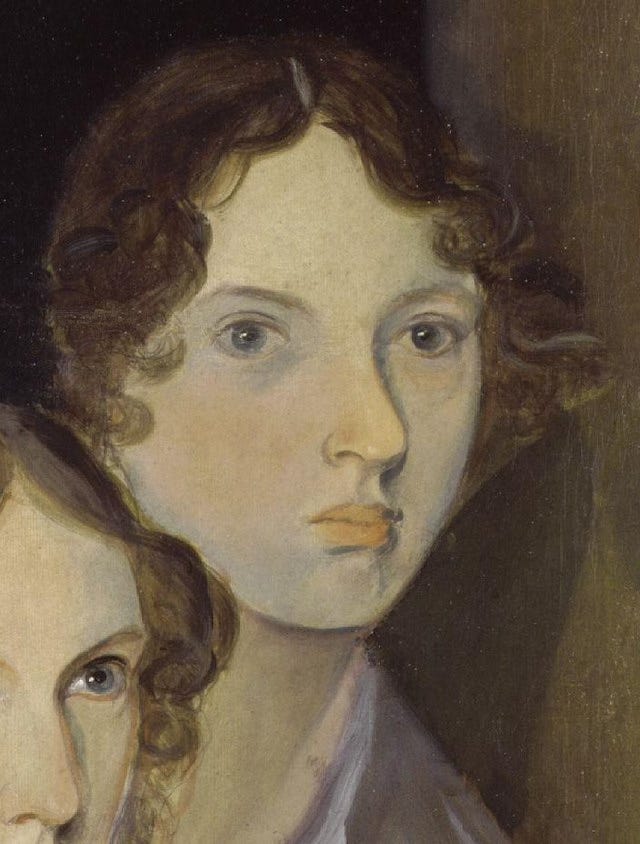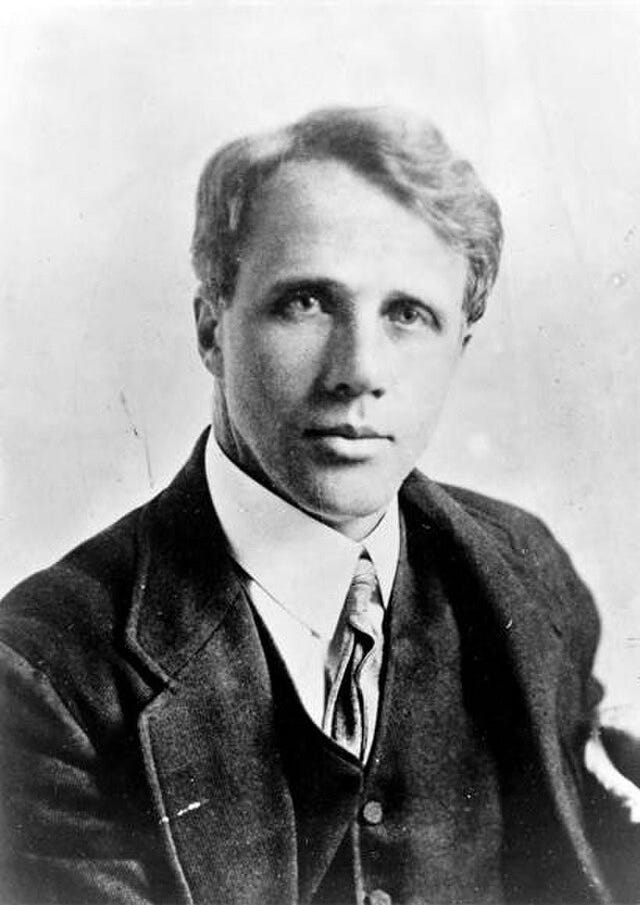Poetry for the Lion-hearted: A short collection
Finding inner-strength through the written word
A good portion of my education was spent at an arts school with a focus on creative writing. I was constantly surrounded by poetry. I have been surrounded by poetry all my life due to my poet-mother. One conversation that has become a bit of a theme over the years though, is how many have been turned off by poetry while in an educational setting. This seems to be the case in particular for men. When I’ve asked them what they were required to study, most of them gave me enough general information to be able to conclude they were mostly required to read poetry dealing with romance. I can relate. In one of my recent essays, I said I prefer warships to relationships regarding my reading. I don’t think I’m the only one.
During the pandemic, I hosted quite a few live streams with my music duo, The Crazy Daysies, alongside my sister, Jen, who’s one-half of the group. Not only did we perform original music, but in between songs we read poetry. It turned out to be a viewer-favorite part of our streams. This got me thinking of putting together a collection of poetry geared towards not only men, but the “lion-hearted” in general—those who have chosen a different path in life and need words to help them persevere. This collection can also help those who possess a spark for the vitality of life, and love reading works that help cultivate courage, adventure, wisdom, and strength. All these virtues support a life well-lived, and so do these poems.
I picked this group of poems because they are easily accessible. No need to break up into small groups and discuss form, meter, rhyme scheme, and what the author was really trying to convey. These poems can be administered straight to the vein. I’ve always loved poetry like that.
These are also all in the public domain, so I’m able to publish them here without violating any of those confusing, pesky copyright laws.
Feel free to jump around this list and read poems individually. Read in multiple settings, or devour them all at once. There’s no wrong way to experience the salve of poetry.
So, when you need a dose of vigor, turn to these poems for comfort, solace, and re-awakened energy.
May these be medicine for your soul, and light for your mind’s-eye.
*I’ve formatted these poems to their appropriate line breaks, however, depending on the device you’re using, line breaks may differ a bit. It shouldn’t take away from the poem’s message though.
“Invictus” by William E. Henley
Henley was one of the Victorian era’s many talented poets. Despite life-long debilitating physical problems, he was a force to be reckoned with. He was good friends with writer Robert Louis Stevenson. Stevenson’s character, Long John Silver from Treasure Island, was actually modeled after Henley.
Stevenson’s family member once described Henley as “...a great, glowing, massive-shouldered fellow with a big red beard and a crutch; jovial, astoundingly clever, and with a laugh that rolled like music; he had an unimaginable fire and vitality; he swept one off one's feet."
The word “Invictus” means “unconquerable” in Latin. When Henley wrote his most famous poem, he was bed-ridden in a hospital, looking for a way to summon up some super-human courage and strength.
“Invictus” is one of the most popular poems ever written. It’s a short, punchy poem you can turn to during dark hours and radiant days.
If you like the poem, check out the essay I wrote regarding the full story behind the poem (and the poem’s author) here.
“Invictus” by Henley
Out of the night that covers me,
Black as the pit from pole to pole,
I thank whatever gods may be
For my unconquerable soul.
In the fell clutch of circumstance
I have not winced nor cried aloud.
Under the bludgeonings of chance
My head is bloody, but unbowed.
Beyond this place of wrath and tears
Looms but the Horror of the shade,
And yet the menace of the years
Finds and shall find me unafraid.
It matters not how strait the gate,
How charged with punishments the scroll,
I am the master of my fate,
I am the captain of my soul.“If” by Rudyard Kipling
Winston Churchill, the Prime Minister of the United Kingdom during much of World War II, viewed Kipling’s “If” as his very own “spiritual autobiography.” The poem details the virtues and character traits of a capable, principled man. And its inspiring lines also helped to inspire other works, like Churchill’s famous “Never Give In” speech, which he made in 1941. Here’s part of that speech, which can be read in full here:
“...this is the lesson: never give in, never give in, never, never, never, never-in nothing, great or small, large or petty — never give in except to convictions of honour and good sense. Never yield to force; never yield to the apparently overwhelming might of the enemy.”
If you are alive, chances are you have battles to fight. Use this poem for a little “backup” as you forge ahead:
“If” by Kipling
If you can keep your head when all about you
Are losing theirs and blaming it on you,
If you can trust yourself when all men doubt you,
But make allowance for their doubting too;
If you can wait and not be tired by waiting,
Or being lied about, don’t deal in lies,
Or being hated, don’t give way to hating,
And yet don’t look too good, nor talk too wise:
If you can dream—and not make dreams your master;
If you can think—and not make thoughts your aim;
If you can meet with Triumph and Disaster
And treat those two impostors just the same;
If you can bear to hear the truth you’ve spoken
Twisted by knaves to make a trap for fools,
Or watch the things you gave your life to, broken,
And stoop and build ’em up with worn-out tools:
If you can make one heap of all your winnings
And risk it on one turn of pitch-and-toss,
And lose, and start again at your beginnings
And never breathe a word about your loss;
If you can force your heart and nerve and sinew
To serve your turn long after they are gone,
And so hold on when there is nothing in you
Except the Will which says to them: ‘Hold on!’
If you can talk with crowds and keep your virtue,
Or walk with Kings—nor lose the common touch,
If neither foes nor loving friends can hurt you,
If all men count with you, but none too much;
If you can fill the unforgiving minute
With sixty seconds’ worth of distance run,
Yours is the Earth and everything that’s in it,
And—which is more—you’ll be a Man, my son!Beowulf translated by Seamus Heaney
Beowulf is an important classical work most are required to study at some point in their lifetime. If it’s taught right, it sticks with you (at least, it did for me). Growing up, it was one of my favorite adventure stories. It’s the ultimate “slay the dragon” tale. And poet Seamus Heaney’s translation of the mysterious epic poem written by what is assumed to be various unknown authors, is a reader-favorite.
Like poet Mary Oliver, Heaney drew much of his inspiration from the natural world, and he blends his love of nature with classical folklore brilliantly with Beowulf.
Besides the striking imagery and fast-paced story (you could read this epic in an extended sitting if you wanted to), Heaney’s alliteration is unmatched. One of my favorite lines from the story is this lone phrase, “A balm in bed for the battle-scarred Swede.”
Here are some more lines that should help spark your sense of wonder and adventure:
“Steams like black clouds, and the groves of trees growing out over their lake are all covered with frozen spray, and wind down snakelike roots that reach as far as the water and help keep it dark. At night that lake burns like a torch. No one knows its bottom, no wisdom reaches such depths.”
“Anyone with gumption and a sharp mind will take the measure of two things: what's said and what's done.”
“Over the waves, with the wind behind her and foam at her neck, she flew like a bird until her curved prow had covered the distance...”
Here are a few short excerpts from a Burton Raffel translation. I haven’t read the Raffel translation, but it comes highly recommended:
“Quickly, the dragon came at him, encouraged
As Beowulf fell back; its breath flared,
And he suffered, wrapped around in swirling
Flames -- a king, before, but now
A beaten warrior. None of his comrades
Came to him, helped him, his brave and noble
Followers; they ran for their lives, fled
Deep in a wood. And only one of them
Remained, stood there, miserable, remembering,
As a good man must, what kinship should mean.”
*
“I’ve never known fear; as a youth I fought
In endless battles. I am old, now,
But I will fight again, seek fame still,
If the dragon hiding in his tower dares
To face me”
*
“Beloved Beowulf, remember how you boasted,
Once, that nothing in the world would ever
Destroy your fame; fight to keep it,
Now, be strong and brave, my noble
King, protecting life and fame
Together. My sword will fight at your side!”
Here’s a link to a popular Heaney translation on Amazon.
“The Old Stoic” by Emily Brontë
I wrote about this wonderful poem not long ago and said its words could “rekindle your zest for life.”
While Brontë is well-known for her novel Wuthering Heights, her poetry is equally as enthralling. “The Old Stoic” focuses on freedom, passion, courage, and the “unchained soul.” It acts as a great afternoon pick-me-up.
“The Old Stoic” by E. Brontë
Riches I hold in light esteem, And Love I laugh to scorn; And lust of fame was but a dream, That vanished with the morn: And if I pray, the only prayer That moves my lips for me Is, "Leave the heart that now I bear, And give me liberty!" Yes, as my swift days near their goal: ’Tis all that I implore; In life and death a chainless soul, With courage to endure.
“Character of the Happy Warrior” by William Wordsworth
Though this Wordsworth poem is often related to military life, it can serve as individual inspiration as well as we chase our dreams, take care of our families, and make our mark in the world. Written after the passing of Lord Nelson, a key figure in the Napoleonic Wars, Wordsworth lays out the foundation of how a successful and virtuous man conducts himself. Though it’s written from a male perspective, I find anyone can relate to the poem’s wisdom and lessons.
It’s a bit more lengthy than the others, but well worth it.
You can also learn more about William Wordsworth’s poetry, and how he embodied the “Happy Warrior” archetype, here.
“Character of the Happy Warrior” by Wordsworth
Who is the happy Warrior? Who is he That every man in arms should wish to be? —It is the generous Spirit, who, when brought Among the tasks of real life, hath wrought Upon the plan that pleased his boyish thought: Whose high endeavours are an inward light That makes the path before him always bright; Who, with a natural instinct to discern What knowledge can perform, is diligent to learn; Abides by this resolve, and stops not there, But makes his moral being his prime care; Who, doomed to go in company with Pain, And Fear, and Bloodshed, miserable train! Turns his necessity to glorious gain; In face of these doth exercise a power Which is our human nature's highest dower: Controls them and subdues, transmutes, bereaves Of their bad influence, and their good receives: By objects, which might force the soul to abate Her feeling, rendered more compassionate; Is placable—because occasions rise So often that demand such sacrifice; More skilful in self-knowledge, even more pure, As tempted more; more able to endure, As more exposed to suffering and distress; Thence, also, more alive to tenderness. —'Tis he whose law is reason; who depends Upon that law as on the best of friends; Whence, in a state where men are tempted still To evil for a guard against worse ill, And what in quality or act is best Doth seldom on a right foundation rest, He labours good on good to fix, and owes To virtue every triumph that he knows: —Who, if he rise to station of command, Rises by open means; and there will stand On honourable terms, or else retire, And in himself possess his own desire; Who comprehends his trust, and to the same Keeps faithful with a singleness of aim; And therefore does not stoop, nor lie in wait For wealth, or honours, or for worldly state; Whom they must follow; on whose head must fall, Like showers of manna, if they come at all: Whose powers shed round him in the common strife, Or mild concerns of ordinary life, A constant influence, a peculiar grace; But who, if he be called upon to face Some awful moment to which Heaven has joined Great issues, good or bad for human kind, Is happy as a Lover; and attired With sudden brightness, like a Man inspired; And, through the heat of conflict, keeps the law In calmness made, and sees what he foresaw; Or if an unexpected call succeed, Come when it will, is equal to the need: —He who, though thus endued as with a sense And faculty for storm and turbulence, Is yet a Soul whose master-bias leans To homefelt pleasures and to gentle scenes; Sweet images! which, wheresoe'er he be, Are at his heart; and such fidelity It is his darling passion to approve; More brave for this, that he hath much to love:— 'Tis, finally, the Man, who, lifted high, Conspicuous object in a Nation's eye, Or left unthought-of in obscurity,— Who, with a toward or untoward lot, Prosperous or adverse, to his wish or not— Plays, in the many games of life, that one Where what he most doth value must be won: Whom neither shape or danger can dismay, Nor thought of tender happiness betray; Who, not content that former worth stand fast, Looks forward, persevering to the last, From well to better, daily self-surpast: Who, whether praise of him must walk the earth For ever, and to noble deeds give birth, Or he must fall, to sleep without his fame, And leave a dead unprofitable name— Finds comfort in himself and in his cause; And, while the mortal mist is gathering, draws His breath in confidence of Heaven's applause: This is the happy Warrior; this is he That every man in arms should wish to be.
“A Psalm of Life” by Henry Wadsworth Longfellow
This poem is quite possibly his most popular work. As a poet of the Romantic movement, his passion for life and living was at the heart of much of his poetry. This short, moving poem is titled well. No matter your religious leanings, “A Psalm of Life” is a deeply spiritual work that can speak to all.
“A Psalm of Life” by Longfellow
What The Heart Of The Young Man Said To The Psalmist.
Tell me not, in mournful numbers,
Life is but an empty dream!
For the soul is dead that slumbers,
And things are not what they seem.
Life is real! Life is earnest!
And the grave is not its goal;
Dust thou art, to dust returnest,
Was not spoken of the soul.
Not enjoyment, and not sorrow,
Is our destined end or way;
But to act, that each to-morrow
Find us farther than to-day.
Art is long, and Time is fleeting,
And our hearts, though stout and brave,
Still, like muffled drums, are beating
Funeral marches to the grave.
In the world’s broad field of battle,
In the bivouac of Life,
Be not like dumb, driven cattle!
Be a hero in the strife!
Trust no Future, howe’er pleasant!
Let the dead Past bury its dead!
Act,— act in the living Present!
Heart within, and God o’erhead!
Lives of great men all remind us
We can make our lives sublime,
And, departing, leave behind us
Footprints on the sands of time;
Footprints, that perhaps another,
Sailing o’er life’s solemn main,
A forlorn and shipwrecked brother,
Seeing, shall take heart again.
Let us, then, be up and doing,
With a heart for any fate;
Still achieving, still pursuing,
Learn to labor and to wait.“The Road Not Taken” by Robert Frost
Like the epic poem, Beowulf, if you’ve spent any time in an English or Lit class you’ve most likely come across this famous Frost poem. At one point in high school, I found out one of my teachers had a particular disdain for Frost. She fancied herself an intellectual type, who thought Frost’s work was like Mary Oliver’s: too obvious and too famous, therefore, it must be bad. Naturally, every chance I got I read Frost poems aloud to her class.
Frost’s poem, as obvious as it may be, remains one of America’s most beloved works. It speaks to the country’s love of individualism, having the courage to chart a different path, and the wisdom to discern between someone’s else’s version of you based on their own bias, versus the version of your true self you find on those cold, winter walks when you are able to just for a moment, turn within.
I hope this “obvious” poem inspires you to travel this life on your own terms, conventions and expectations be damned.
“The Road Not Taken” by Frost
Two roads diverged in a yellow wood, And sorry I could not travel both And be one traveler, long I stood And looked down one as far as I could To where it bent in the undergrowth; Then took the other, as just as fair, And having perhaps the better claim, Because it was grassy and wanted wear; Though as for that the passing there Had worn them really about the same, And both that morning equally lay In leaves no step had trodden black. Oh, I kept the first for another day! Yet knowing how way leads on to way, I doubted if I should ever come back. I shall be telling this with a sigh Somewhere ages and ages hence: Two roads diverged in a wood, and I— I took the one less traveled by, And that has made all the difference.
“Self-Reliance” by Ralph Waldo Emerson
This last inclusion is not a poem, but Emerson’s “Self-Reliance” essay is so eloquently written and so quotable it feels melodious.
I find myself saying these lines in my mind quite often:
“Nothing can bring you peace but yourself. Nothing can bring you peace but the triumph of principles.”
This is another poetic work that is deeply spiritual, and serves as a great introduction to Emerson’s philosophy of Transcendentalism. This uniquely American philosophy is rooted in nature, the individual’s experience, and spiritual thinking.
You can read the essay in full for free here.
If you’d like to dive into Transcendentalism more, you can purchase a copy of The Spiritual Emerson, which can be found on Amazon. I found this book on a whim in a Barnes and Noble in high school, and I’ve treasured the copy ever since (I’ve also marked up the margins handily).
May its words cultivate a steady heart and strong soul for you.
I plan on doing more editions of these short collections. If you have a poem in mind dealing with finding one’s inner-strength, please share it below. Also, if you have a theme you’d like me to cover, comment below as well. It will give me an excuse to say I’m “working” while getting to browse poetry all day ;)









This is a really neat idea. The arts supported ideas other than the current politically correct ones for a very long time, and could again.
I remember Margaret Atwood (ironically) saying she didn't understand why poetry was unmanly since it was all about battles and so on. Of course that was back in the 50s or so.
There's a long tradition of the warrior-poet in other cultures; Japanese samurai and Chinese warlords composed poetry, Greek philosophers fought, and early-modern Spaniards tried to excel at the sword and pen; Cervantes was injured at Lepanto.
I know a Russian lady who had her son learn 'If' (and it fits Stoic philosophy pretty well). So it's not totally forgotten.
'Invictus' has gotten a bad rap because the Oklahoma City bomber chose it as his final statement before his execution. (Japanese monks and samurai would compose a death-poem, a final statement.)
What an interesting and inspiring principle of curation! I don't read much poetry anymore, but I enjoyed your selection. My mother died in August of 2023, and we had her Celebration of Life this July. We shared memories and sang songs. I read Invictus, which was one of Mom's favorites, and at the end my brother, sister, and I each recited a Little Willie poem. It was quite special.
Please keep pieces like this comin'!